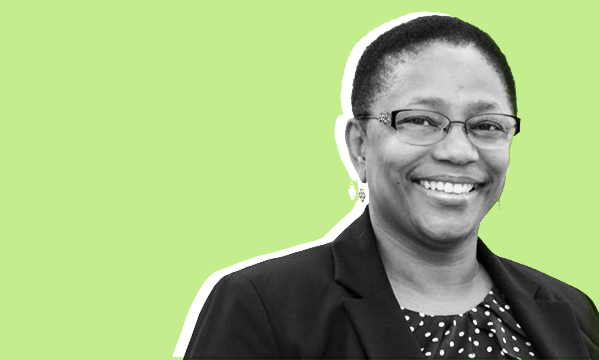This is a guest post that is part of a series featuring women leaders for Black Women’s Equal Pay Day, which falls on August 7, 2018.
Jacqueline M. Ebanks is the Executive Director, NYC Commission on Gender Equity.
It’s August 7th , and if you’re a Black woman in the United States, today is the day you’ll finally get paid equal to what a white man earned in 2017 – four months after white women’s “equal pay day” and three months before Hispanic women.
Even in a place as progressive as New York City, Black women in New York City make just 53 cents for every dollar a white man makes. These disparities persist across all levels of educational attainment. Black and Hispanic women with college degrees earn 61 cents and 60 cents on the dollar, respectively, compared to white men with college degrees. Even when we restrict ourselves to similar occupations and industries, the average woman makes less than her male counterparts.
In New York City, Mayor Bill de Blasio and First Lady Chirlane McCray have made a commitment to gender equity that is holistic and intersectional, recognizing that the road to equality is complex. They began by announcing the formation of New York City’s first-ever Commission on Gender Equity in 2015, and naming the First Lady as co-chair of the Commission. The Commission aims to leverage the power of City government to expand and increase opportunity for all girls, women, and transgender and gender non-conforming New Yorkers regardless of their gender identity, expression, sexual orientation or background.
Economic Mobility and Opportunity is one of the Commission’s three focus areas, and in February, the Commission released a pay equity report that identifies best practices to achieve equal pay. Employers who want to truly address the pay gap should start by establishing wage and gender equity as a company-wide value. Organizations can also take intentional steps to make noticeable changes, including instituting unconscious bias training – especially for hiring and recruitment, using bias-free advancement practices, and creating more transparency in compensation and advancement decisions. The Commission’s full report is available online.
Additionally, the Commission on Gender Equity is working to develop and institutionalize policies and actions to help ensure every worker is paid a fair wage, regardless of gender identity or expression, race, or ethnicity. Last year, New York City joined a small number of cities working to actively create pay equity by becoming fist municipality in the nation to enforce a law prohibiting all employers in New York City from inquiring about job seekers’ salary history during the hiring process, including on job applications and in interviews.
Under this ban, inquiring about or even searching for public records to find out salary information is a violation of the City’s Human Rights Law, one of the strongest civil rights law in the nation. It holds violators accountable with civil penalties of up to $250,000, unlimited compensatory damages to victims, mandated trainings so businesses avoid future violations, changes to policies, and other measures including community service and mediated apologies, among other consequences. Advocates say laws like New York City’s salary history ban help end an employment practice that perpetuates gender wage discrimination. By withholding salary history, potential employees – especially women – can negotiate fair compensation based on their qualifications and earning potential rather than being measured by their previous salary.
These steps, while positive, are just the beginning. There is still much work to be done to truly achieve pay equity. For us in New York City, the sea change we hope to make to reduce pay disparity between men and women begins at home, with us. We believe that if we take care of our house and lead by example, other cities across the country are likely to follow.


